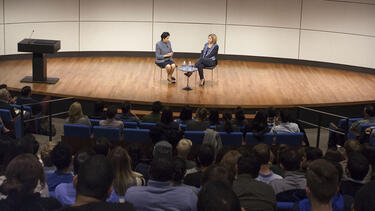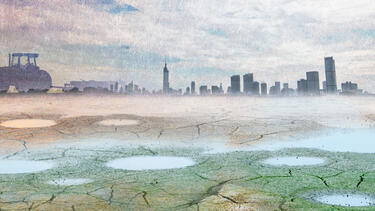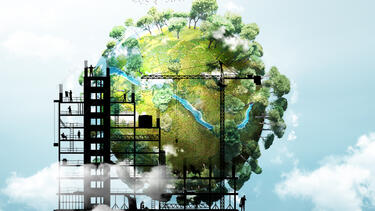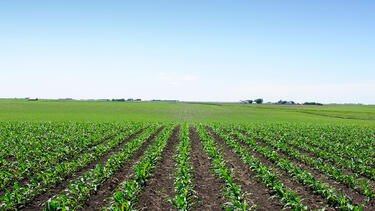Sustainability
Renewable Energy Is Easier Than Ever to Build—and Harder to Talk About
Advances in technology and a maturing development ecosystem have made renewable energy more economical, less risky, and increasingly rewarding for landowners, says Reid Buckley ’89, a partner at Orion Renewable Energy Group. But it has also become more politicized.

Can a Positive Impact Be Profitable?
PepsiCo CEO Indra Nooyi ’80 talks about the company’s Performance with Purpose initiative and the evolving role of sustainability.

Can We Create Affordable Housing in the World’s Fastest-Growing Cities?
Ira Peppercorn ’85 says that creating affordable housing in the world’s fastest-growing cities requires accurate data and an incremental approach.
Can Improving Farming Productivity Save the Rainforest?
Research by Mushfiq Mobarak suggests that improved crop productivity through electrification pushes Brazilian farmers away from land-intensive cattle grazing.
Should We Put a Price on Water?
Jim Matheson, CEO of Oasys Water, discusses the role for policy and innovation in avoiding a global freshwater crisis.

Is Climate Change Too Big for Business?
Frances Beinecke argues that climate change is too fundamental for business to solve without a framework set by public policy.

How Did Volkswagen Go Wrong?
Three Yale faculty on the causes and consequences of the Volkswagen emissions scandal.

Can We Change the Climate Conversation?
Yale's Brad Gentry on the state of the climate change talks and what a recent Global Network survey of MBA students tells us about the change in the discourse.
Can Business Change the Game on Climate Change?
When the United Nations Framework Convention on Climate Change meets in Paris in December, business leaders will be part of the discussion for the first time.

Seven Reasons Volkswagen Is Worse than Enron
In the Financial Times, Yale SOM’s David Bach writes that the Volkswagen emissions scandal could destroy an iconic German company and set back efforts to use technology to achieve environmental sustainability.

How Big Can Organic Grow?
Organic food is booming. Even after a dip during the financial crisis, organics have continued to grow at an impressive clip worldwide. But organic food remains a small fraction of total food consumption. Will organics will ever be able to break into the mainstream? Yale Insights talks with Denis Ring ’84, founder of organic chocolate company Ocho Candy and creator of Whole Foods’ 365 organic store brand.
